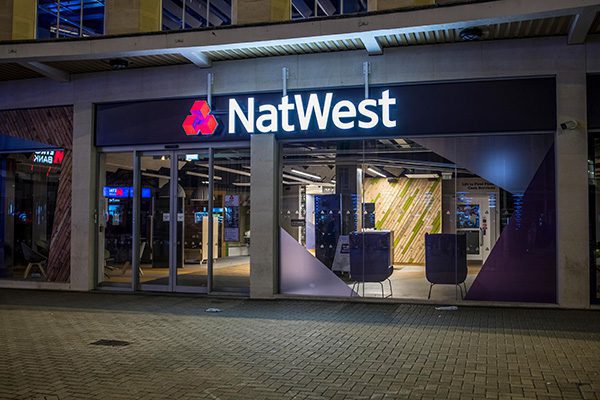
After an embarrassing scandal which saw Coutts CEO Peter Flavel and NatWest boss Alison Rose both leave their positions over the closure of Nigel Farage’s bank account, the UK banking sector may now be forced to react.
The episode has forced a rethink on how the wider banking sector, which is already under fire from the Treasury committee over claims of “profiteering” from savers, should move forward to protect its reputation.
Farage has since demanded compensation from the 330-year-old bank, worsening its own blushes and causing ripples throughout the sector on the implications of similar scandals.
As far as immediate impacts of the fallout, senior banking officials are likely to be looking over their shoulders after the surprising departure of NatWest’s Rose which Standard Chartered CEO Bill Winters called a “heavy price to pay” after her admittance of a “serious error in judgement”.
NatWest also came under fire from politicians on both sides after it emerged that Farage’s accounts were banned as a result of “public statements which were felt to conflict with the bank’s purpose”.
Samuel Gregg, economist with the American Institute for Economic Research, said the situation demonstrated why company leaders should be wary of involving themselves in political debates.
Gregg told Reuters: “Banks have ended up caught in British political crossfire because they have been ‘co-opted’ into supporting an array of causes, left and right, instead of focusing on delivering profits and shareholder value.”
It could also pave the way for further scrutiny for the industry from the government, with Harriet Baldwin, chair of the cross-party Treasury committee saying recently that banks should be implored to inform customers when better savings rates are available elsewhere.
Baldwin said in a statement that the “time for foot dragging and weak excuses is over”, given that lawmakers are in agreement on the fact that action is required.
Alongside the comments from Baldwin, Andrew Griffith, the economic secretary to the Treasury, tweeted about the reformation of the conditions of banking licences. Meanwhile, other regulatory responses are also being considered.
Farage has also announced his mission to stop the same thing happening to others, demanding a meeting with Coutts and NatWest bosses on the subject.
The GB News presenter’s savvy media personality may help to force the government to act in defence of those whose bank accounts have suffered a similar fate off the back of their own personal views.
Aside from possible future intervention from the government, consumers may choose to do their business elsewhere, with a swathe of around 10,000 ex-NatWest customers joining a Facebook group detailing their bans and sharing templates for Subject Access Requests for dossiers held by the bank.
Jessica Cath, Thistle Initiatives head of financial crime, told Payments Review: “The Farage-PEP episode is certainly going to have an impact on financial services firms. The FCA has requested banks provide data on the reasons behind account closures as part of an investigation, that will lead to further guidance.
“However, I hope the conversation moves beyond just PEPs, as there are many other customer segments that experience de-banking and don’t have the same voice as Farage.
“Having said this, firms do still need to have the flexibility to offboard customers where they cannot effectively manage material risks.”
The Payments Association
St Clement’s House
27 Clements Lane
London EC4N 7AE
© Copyright 2024 The Payments Association. All Rights Reserved. The Payments Association is the trading name of Emerging Payments Ventures Limited.
Emerging Ventures Limited t/a The Payments Association; Registered in England and Wales, Company Number 06672728; VAT no. 938829859; Registered office address St. Clement’s House, 27 Clements Lane, London, England, EC4N 7AE.







Log in to access complimentary passes or discounts and access exclusive content as part of your membership. An auto-login link will be sent directly to your email.
We use an auto-login link to ensure optimum security for your members hub. Simply enter your professional work e-mail address into the input area and you’ll receive a link to directly access your account.
Instead of using passwords, we e-mail you a link to log in to the site. This allows us to automatically verify you and apply member benefits based on your e-mail domain name.
Please click the button below which relates to the issue you’re having.
Sometimes our e-mails end up in spam. Make sure to check your spam folder for e-mails from The Payments Association
Most modern e-mail clients now separate e-mails into different tabs. For example, Outlook has an “Other” tab, and Gmail has tabs for different types of e-mails, such as promotional.
For security reasons the link will expire after 60 minutes. Try submitting the login form again and wait a few seconds for the e-mail to arrive.
The link will only work one time – once it’s been clicked, the link won’t log you in again. Instead, you’ll need to go back to the login screen and generate a new link.
Make sure you’re clicking the link on the most recent e-mail that’s been sent to you. We recommend deleting the e-mail once you’ve clicked the link.
Some security systems will automatically click on links in e-mails to check for phishing, malware, viruses and other malicious threats. If these have been clicked, it won’t work when you try to click on the link.
For security reasons, e-mail address changes can only be complete by your Member Engagement Manager. Please contact the team directly for further help.